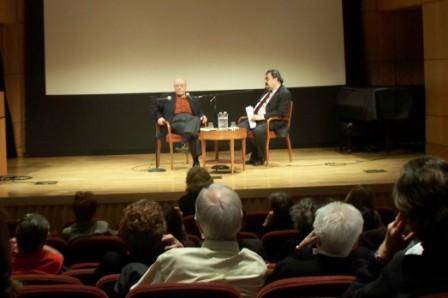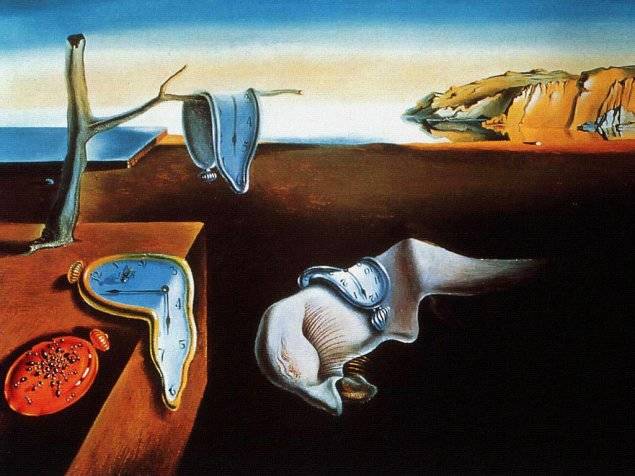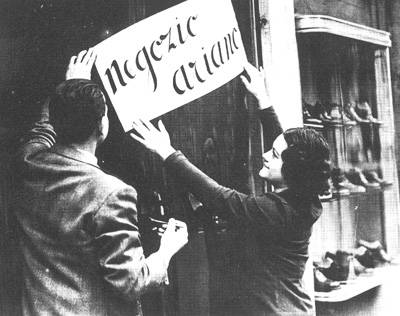The Responsibility of Memory According to the Primo Levi Center
January 27: On Remembrance Day many Italian-Americans, Italians, and Americans gathered in front of the Consulate General of Italy for the entire day. Many people took to the podium to read the names of thousands and thousands of Jews who were deported from Italy and the Italian territories during the Nazi-Fascist era. Feelings of guilt, compassion, and sorrow crowded our hearts and minds. Those were the names of people who might still be alive today if it weren’t for us, for the rest of humanity who preferred to look away, pretending that nothing was happening, refusing to see, to hear.
January 27 was not only a day of commemoration. No, reading aloud pages of names is not enough. We must reflect, reason, ask ourselves why. And most of all, we must wonder if we are doing enough to avoid similar tragedies in the future.
The Primo Levi Center in New York gave us this precious opportunity.
Do Italians still remember the awful discrimination and persecution perpetuated against the Jews in the 1940s, starting with the Racial Laws of 1938? What have they learned from the past? Or, maybe it is better to reformulate the question: Did they learn anything at all? The documentary screened that evening gave us discouraging answers. The title
speaks for itself: Quella Pagina Strappata (The Torn Page, Daniel Toaff, 1988). It refers to the first half or so of that decade, the years when an entire stratum of Italian society was unjustly killed – and that fact seems to have been completely forgotten.
The people that took part in the survey had no idea what the Racial Laws were all about: “Legally authorized discrimination? Deportation, massacres? No, I don’t remember anything like that.” … “No, I am not interested in politics.”… “No, I was a child at that time and history is not my field.” These were just some of the answers. Well, there was one person who did mention the Racial Laws but his comment was, “Well, those were Jews, it doesn’t count.” Is this it? Is this all Italians could answer? Was that page of history really torn or was it that the survey didn’t really reflect the truth?
Looking around at the people next to me in the auditorium, I would have given the second answer: everyone was so surprised, skeptical, and scandalized. No one seemed to believe that it could ever be possible.
But there was something that made me think that perhaps we had this reaction because we were “focused” on the subject; we knew what we were talking about. We were prepared to give the right answer. In a month or so we will relegate these memories to a corner of our minds, keeping them quiet, and acting as though nothing ever happened. That “something” was the interview with Andrea Fiano, Chairman of the Board of the Primo Levi Center and journalist for the Italian newspaper Milano Finanza conducted by Rabbi Jack Bemporad, Director of the Center for Interreligious Understanding. The latter’s comments, opinions, and statements made me understand that in order to say that memory is actually still alive people must act according to its teachings. But in the past and present we often see indifference and behavior that fall far from this ideal. Let’s see why.
Past: Rabbi Bemporad’s family never lived the holocaust experience. They escaped from Italy as soon as the Racial Laws were passed. “We have to understand that there are different types of victims; those who avoided the concentration camps were not winners at all. I remember the fear I saw in my parents' eyes when we came in this country. They didn’t speak a world of English. We were objects of great prejudice; my father had no particular skill so he couldn’t even find a job. Anti-Semitism was incredibly strong here too.” Nobody remembers this: first torn page.
Present: “Why is this day, Remembrance Day, different from other days?” This is the question the rabbi was asked. He answered with another question: “Why should it be different?” Why do we need a day to commemorate, when we have thousands of occasions every day to demonstrate that we learned our lessons? We still have entire populations, communities, ethnic groups being killed every day. They are not far away from us, but we want to be blind. Or maybe we actually are. We look back and dedicate a day to the Shoah of the Jews, when we have holocausts all around us.”
What to do? “We have to set up structures, institutions, which teach the values of fraternity and altruism – values that rise from our common memories. We need to have a massive program of education. It’s a duty for the Jewish community and for the Christian church as well. They apologized for their silence in the past, I know. But I remember that John Paul II told me in 1990 that he had done everything in his power to institutionalize history through education. I expect that his present and future successors will follow his path, regardless of the political interests they might have […].”
“This is a day of commemoration, not a day of commiseration. Pity hides an innate awareness that what happened to the Jews is unique and could not touch anyone else in the past, present, or future. That’s wrong: these are universal matters. We are all menaced by this sort of nuclear bomb. But would we like to see the day where every non-Jew will stand up and say 'We will not tolerate a Holocaust denier.’ When they will, only then, we will be able to say that Jews have been accepted. People must understand that the holocaust is not simply a Jewish issue.”
Who's issue is it? “Well, Bosnia was not Jewish. Zimbabwe is not Jewish, and what is happening there is absolutely horrendous. And people keep living just on memory, when there are people being massacred all around us and we are not doing anything at all about it. Even Jews don’t lift a finger.” One day our present will make history: we are tearing another page of memory.
This Holocaust is the greatest moral lesson of history and we haven’t taught it. And that’s the tragedy.
(Edited by Giulia Prestia)




































i-Italy
Facebook
Google+
This work may not be reproduced, in whole or in part, without prior written permission.
Questo lavoro non può essere riprodotto, in tutto o in parte, senza permesso scritto.